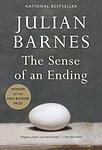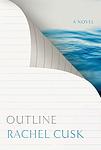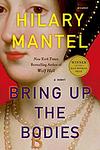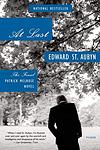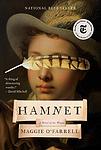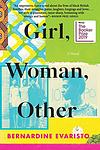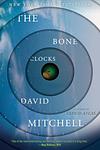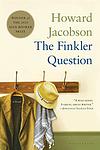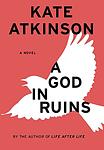The Greatest British "Fiction" Books Since 2010
Click to learn how this list is calculated.
This list represents a comprehensive and trusted collection of the greatest books. Developed through a specialized algorithm, it brings together 270 'best of' book lists to form a definitive guide to the world's most acclaimed books. For those interested in how these books are chosen, additional details can be found on the rankings page.
Genres
Countries
Date Range
Reading Statistics
Click the button below to see how many of these books you've read!
Download
If you're interested in downloading this list as a CSV file for use in a spreadsheet application, you can easily do so by clicking the button below. Please note that to ensure a manageable file size and faster download, the CSV will include details for only the first 500 books.
Download-
1. The Sense of an Ending by Julian Barnes
This novel revolves around a middle-aged man, Tony Webster, who is forced to reevaluate his understanding of his past when he unexpectedly receives a lawyer's letter that drags him back into his complex history with his university friends, Adrian and Veronica. The book explores themes of memory, history, and time, showing how our understanding of the past can be distorted by our own perceptions and emotions. As Tony delves into his past, he realizes that his memories may not be as accurate as he once believed, leading to a surprising revelation.
-
2. Life After Life by Kate Atkinson
"Life After Life" follows the story of Ursula Todd who is born and dies repeatedly in February 1910. Each time Ursula dies, her life restarts, with each successive life bringing different circumstances and decisions. The novel explores themes of fate, free will, and the infinite possibilities of existence. Through Ursula's many lives, the narrative provides different perspectives on significant historical events, including both World Wars.
-
3. Outline by Rachel Cusk
"Outline" is a novel that follows the story of a woman who travels to Athens to teach a writing seminar and engages in a series of conversations with various people she encounters. These include fellow authors, students, and locals, each of whom share intimate details of their lives, allowing the protagonist to reflect on her own experiences and emotions. The book explores themes of identity, storytelling, and the complexities of human relationships.
-
4. NW: A Novel by Zadie Smith
This novel follows the lives of four Londoners - Leah, Natalie, Felix, and Nathan - as they navigate adulthood in the diverse, vibrant, and sometimes volatile neighborhood where they grew up. The narrative explores themes of identity, class, friendship, and the complex nature of urban life, intertwining the characters' stories in a way that reflects the interconnectedness and fragmentation of city living.
-
5. Bring Up the Bodies: A Novel by Hilary Mantel
This historical novel continues the story of Thomas Cromwell, advisor to King Henry VIII of England. The narrative follows Cromwell's rise in power and the political machinations that lead to the downfall of Anne Boleyn. It showcases the manipulative and treacherous world of the Tudor court, where a single misstep can lead to disgrace and execution. Despite the danger, Cromwell manages to navigate the treacherous waters, using his intelligence and cunning to survive.
-
6. How to be both by Ali Smith
This novel is a dual narrative that explores the interconnected stories of a 15th-century Italian Renaissance artist named Francesco del Cossa and a modern-day teenager named George. The book is divided into two parts, one set in the past and one in the present, and the order in which they are read can change the reader's interpretation of the story. The novel delves into themes of art, gender, sexuality, and the fluidity of identity, while also examining the ways in which we perceive and understand the world around us.
-
7. There But For The by Ali Smith
There But For The is a novel that explores the interconnectedness of people's lives through the story of a man who locks himself in a room of a house he was invited to for dinner, and refuses to come out. The man's actions cause a media frenzy and bring together four individuals who have links to him, each revealing their own stories and perspectives. The book is a commentary on contemporary life, exploring themes of identity, memory, time, and the nature of connection and disconnection in society.
-
8. The Girl On The Train by Paula Hawkins
In this psychological thriller, the story revolves around a troubled woman who becomes entangled in a missing persons investigation that promises to send shockwaves throughout her life. As she rides the train every day, she fantasizes about the seemingly perfect couple she sees from her window, until one day she witnesses something shocking in their backyard. Her decision to report it to the authorities leads her down a dark path of intrigue, as she struggles to piece together her fragmented memories and the tangled web of lies, deceit, and complicated relationships that surround the case. Her involvement becomes increasingly dangerous as she tries to prove not only what she saw, but also her own worth and sanity.
-
9. At Last by Edward St Aubyn
"At Last" is the final installment in a five-part series that follows the life of a man from a dysfunctional, upper-class English family. The protagonist attends his mother's funeral, where he reflects on his traumatic childhood, filled with abuse and neglect, and his subsequent struggles with drug addiction. Throughout the day, he interacts with a host of characters from his past and present, leading to introspection and revelations about his life and relationships. The book presents a scathing critique of the British aristocracy, while also exploring themes of recovery, redemption, and the possibility of change.
-
10. Harvest by Jim Crace
Set in a remote English village over a seven-day period, "Harvest" tells the story of a community on the brink of inevitable change. The village's way of life is threatened when three outsiders set up camp on the outskirts, and a fire at the manor house leads to suspicion and blame. As the villagers grapple with the intrusion and the resulting chaos, the imminent enclosure of the common land looms, signaling the end of the agrarian lifestyle they've always known.
-
11. Hamnet by Maggie O'Farrell
"Hamnet" is a deeply moving and beautifully written historical novel that reimagines the life of a young boy, Hamnet, who is the son of a glovemaker in Stratford-upon-Avon. The boy tragically dies at the age of 11, which leaves a profound impact on his family, particularly his father, who is inspired to write one of the world's most famous plays. The narrative alternates between the time leading up to Hamnet's death and the aftermath, providing an intimate portrait of grief, love, and the power of art.
-
12. The Power by Naomi Alderman
"The Power" by Naomi Alderman is a speculative fiction novel that imagines a world where women develop the ability to produce electrical shocks from their bodies, giving them a newfound physical power over men. The novel follows the lives of four characters as they navigate this new reality and the societal and political upheaval that comes with it. Through their experiences, the book explores themes of gender, power, and the corrupting nature of authority.
-
13. Autumn by Ali Smith
"Autumn" is a post-Brexit novel revolving around the deep and complex friendship between an old man, Daniel, and a young woman, Elisabeth. Set in the United Kingdom, the story unfolds as Daniel lies in a care home slipping in and out of consciousness, and Elisabeth visits him, reading to him and reflecting on their shared past. The narrative weaves between the past and present, exploring themes of time, art, love, and political upheaval. It is a meditation on a world growing ever more bordered and exclusive, on what richness and worth are, on what harvest means.
-
14. Fifty Shades of Grey: by E L James
A young, innocent college student interviews a handsome, enigmatic billionaire for her campus newspaper and soon finds herself drawn into his world of dominance and submission. As she navigates the unfamiliar territory of BDSM, she must also grapple with her own desires and the emotional complexities of their unconventional relationship. This erotic romance novel explores themes of power, control, and the nature of love and desire.
-
15. The Ocean at the End of the Lane by Neil Gaiman
The protagonist, a middle-aged man, returns to his childhood home for a funeral and is drawn to the farm at the end of the road where he encounters a pond that was once an ocean in his childhood memories. He recalls a series of strange and terrifying events that occurred when he was seven, involving the mystical Hempstock women who live on the farm and their battle against malevolent supernatural entities that threatened his existence. The book explores themes of memory, magic, and the darkness that lies beneath the surface of everyday life.
-
16. Girl, Woman, Other by Bernardine Evaristo
The novel is a vibrant portrayal of the lives of twelve different characters, primarily black British women, spanning over a century. Each character has their own unique story, tackling issues such as feminism, politics, sexuality, and identity. The narrative is a blend of poetry and prose, exploring the interconnected lives of these women and their personal struggles and triumphs. It is a powerful exploration of race, gender, and the changing face of Britain.
-
17. Code Name Verity by Elizabeth Wein
"Code Name Verity" is a gripping historical fiction novel set during World War II. The story follows two best friends, a British spy and a pilot, as they navigate the dangerous world of espionage and warfare. When their plane crashes in Nazi-occupied France, their friendship and loyalty are tested as they face interrogation, betrayal, and the harsh realities of war. Through alternating perspectives and a complex web of secrets, the book explores themes of bravery, sacrifice, and the enduring power of friendship.
-
18. The Bone Clocks by David Mitchell
This novel weaves together the lives of diverse characters through a narrative that spans decades, centering on a teenage runaway with psychic abilities. As she becomes embroiled in a covert war between immortal factions, the story explores themes of mortality, power, and the interconnectedness of human lives. The intricate plot moves through different times and places, revealing a hidden world of mysticism and a looming apocalyptic crisis, all while examining the impact of our actions on the future of the planet.
-
19. H Is For Hawk by Helen MacDonald
"H Is For Hawk" is a memoir by Helen MacDonald about her experiences training a goshawk named Mabel after the sudden death of her father. MacDonald reflects on her grief and the challenges of training a wild bird while also delving into the history of falconry and the life of T.H. White, the author of "The Once and Future King" who also trained a goshawk. The book explores themes of loss, nature, and the complexities of human-animal relationships.
-
20. Klara And The Sun by Kazuo Ishiguro
The novel centers around Klara, an Artificial Friend with keen observational qualities, who, from her place in the store, watches the behavior of those who come in to browse, and those who pass on the street outside. She remains hopeful that a customer will soon choose her, but when the possibility emerges that her circumstances may change forever, Klara is warned not to invest too much in the promises of humans. Set in a dystopian future, the story explores complex themes such as the nature of love, the ethics of artificial intelligence, and what it truly means to be human, all through the eyes of an AI protagonist yearning to understand the people she is meant to serve.
-
21. Children Of Time by Adrian Tchaikovsky
"Children of Time" by Adrian Tchaikovsky is a science fiction novel that explores the evolution of two species, humans and spiders, on different planets. When Earth faces destruction, a group of humans embarks on a mission to terraform a new planet and create a new civilization. However, an experiment involving a virus meant to accelerate the evolution of monkeys goes wrong, leading to the unintended uplift of spiders. The story follows the parallel development of both species, highlighting their struggles, conflicts, and eventual convergence as they vie for dominance in a rapidly changing world.
-
22. Home Fire by Kamila Shamsie
"Home Fire" is a contemporary reimagining of Sophocles' Antigone set against the backdrop of modern-day London and Syria. The novel explores the lives of five characters caught in a complex web of love, loyalty, and sacrifice. The story revolves around two British-Pakistani families, each struggling with their own dilemmas related to identity, radicalism, and loyalty. One family is headed by a powerful politician who disowns his jihadist son, while the other consists of three orphaned siblings whose lives are turned upside down when their brother is accused of joining ISIS. The novel explores the consequences of their actions, questioning the extent to which one can go for love and loyalty.
-
23. The Finkler Question: A Novel by Howard Jacobson
The novel explores themes of identity, loss, and love through the lens of three friends - two Jewish and one who wishes he was. It delves into the psyche of the characters as they grapple with anti-Semitism, self-hatred, and their own personal tragedies. The protagonist, a man who starts to believe he is Jewish after a violent mugging, navigates his new identity with humor and introspection, leading to a poignant exploration of what it means to belong.
-
24. A God in Ruins by Kate Atkinson
"A God in Ruins" is a novel that tells the story of Teddy Todd, a World War II bomber pilot, and his life before, during, and after the war. The narrative alternates between different time periods, exploring Teddy's childhood, his experiences in the war, and his later life as a husband, father, and grandfather. The book delves deep into the effects of war, the passage of time, and the complexities of family relationships, offering a poignant exploration of a man's life and the historical events that shape it.
-
25. Through the Language Glass: Why the World Looks Different in Other Languages by Guy Deutscher
This book explores the link between language and perception, challenging the conventional belief that languages are only tools for describing reality and do not influence the way we perceive the world. The author delves into how different languages can shape the way their speakers understand and interact with their surroundings, arguing that linguistic differences can significantly impact cognition and perception. The book combines linguistic analysis, cultural history, and cognitive science to provide a fascinating examination of how our mother tongue can affect our cognitive processes, including color perception and spatial orientation.
Reading Statistics
Click the button below to see how many of these books you've read!
Download
If you're interested in downloading this list as a CSV file for use in a spreadsheet application, you can easily do so by clicking the button below. Please note that to ensure a manageable file size and faster download, the CSV will include details for only the first 500 books.
Download